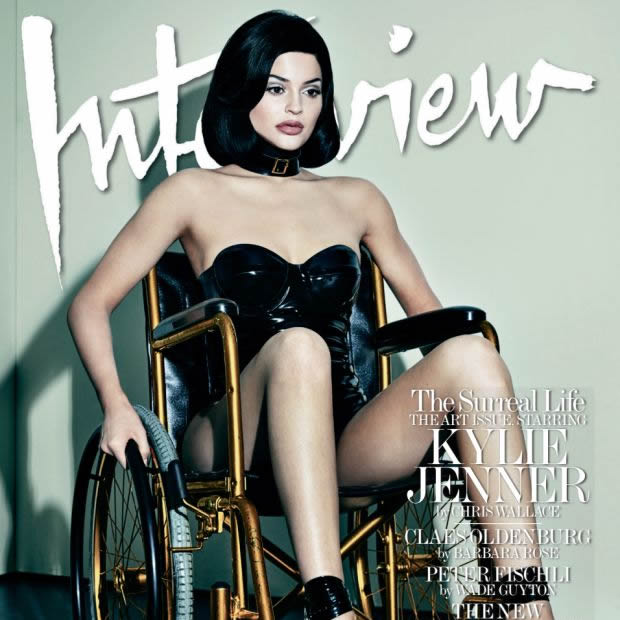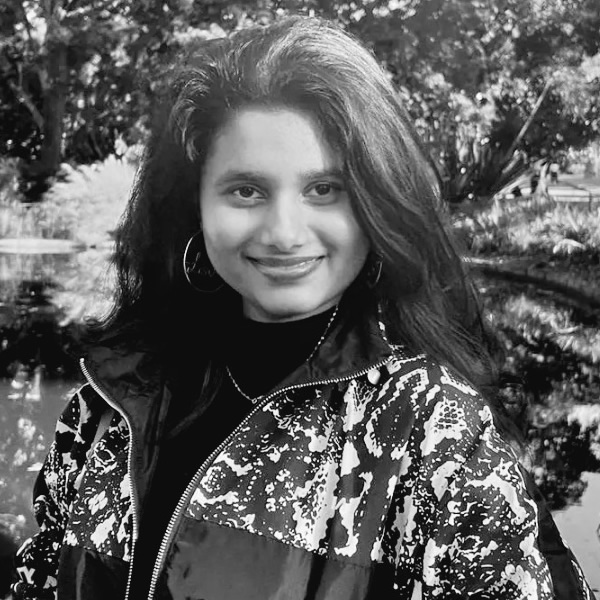Desexualization of Disabled People - Samaqrakoon B.


Description:
Kylie Jenner, an American media personality has posed in a wheelchair wearing provocative clothing to convey sexualized disability which is contradictory to how society is constructed. Society attempts to desexualize people with disabilities. This artefact perpetuates the idea of stereotypes regarding desexualization of people with disabilities.
Significance:
I chose this artefact because media, TV and all other social media platforms demonstrate the unconscious biases that exist in society towards the people disabilities. The way they portray people with disabilities creates the power to dismantle ableism. It creates stereotypes about disabled people by perpetuating the idea that they are uninterested or unfit to be in sexual relationships. This affects both men and women with disabilities. The social construction of the disabled body as passive and dependent is often exposed to desexualization, presenting people with disabilities as they are inadequate for an intimate and sexual life (Shuttleworth, 2006). The artefact perpetuates the idea that rather than a body which is unfit, the misfit is instead a cultural misconception or failure in accepting diversity. The social construction recognizes the people with disabilities as asexual or unable to give consent. As a result, it increases the limitations of people with disabilities having experiences of sexual intimacy and desiring practices (Shuttleworth, 2006). The oppression of disabled people integrates the cultural oppression of the body. Disability is not a biological given, it is socially constructed. Their disability is not the problem but the perspectives of people and how the society is constructed towards the sexual life of people with disabilities. Disability has become a social construction rather than bodily misfortune. This artefact conveys the impact of ideologies and cultural institutions on desexualizing people with disabilities.
Positionality:
I am interested in Disability and Sex because I feel myself as a woman/female and different role that I play when it comes to sexuality. It is important to understand the levels of sexuality in a relationship which helps to maintain that relationship. Sexuality differs according to many factors. Factors related to historical periods and sexual diversity such as sexual identity and sexual orientation can be considered. (Turner, 2020) Not only identity and orientation but also diversity in desires, behaviors and fantasies which give an erotic interaction (Gianotten et al., 2021). In my opinion, cultural norms and beliefs influence sexuality in several ways. Peers and family promote sexual behaviors as sexuality is a concept which is socially constructed (Giertsen et al., 2021). Personally, I do not want my family or peers to think about me or view me in a negative way as a result of cultural norms and values. Acceptance should be an essential factor in developing of sexual identity as the fear of rejection might affect an individual in expressing their sexual needs or true selves. My perception of sexuality has been influenced by family, culture, religion, and media. In my society, sexuality is not a subject that speaks openly. As an illustration, I was scared that if I have ever had sex, my parents would be disappointed and ashamed as it is a situation where people look down upon in Sri Lankan culture. Therefore, it is important to understand and make choices regarding sexuality whether it is a good thing or an evil thing (Maddock & William, 2013).
Impact:
This subject has helped me to understand what kind of a person I am when it comes to sexuality and what my gender role as a female consists of. It taught me how sexuality and sex is shaped by values, norms and beliefs related to different cultures and how it is socially constructed in both negative and positive way. As a result, it has given me confidence and strength to be more openminded about everything related to sex and sexual activities and to explore and interact with new ideals. It is important to keep an open mind when exploring one’s sexual identity. On the other hand, disabled people were highly marginalized in Sri Lanka when it comes to sexual matters. This has helped me to understand how disabled people are being socially excluded and how they have been deprived of having sexual relationships and pleasures. It made me realize that rather than impairment, the social construction instead is the misfit when it comes to people with disabilities having intimate relationships and desire. Learning about desexualization is important as it is a prevalent issue in Sri Lanka. Gaining knowledge related to sex and sexuality will be important for me in order to challenge those stereotypes in my society. The social work education related to sexuality and recognizing the need for knowledge and practice will be important in promoting sex positive approach in the society (Gomez et al., 2020).
Wish List:
I hope my artefact inspires viewers to consider the fact that the society is socially constructed to view individuals with disabilities as incompetent and desexualized individuals who need assistance and caregiving. I hope this artefact will inspire viewers to explore and unpack the stigmas and stereotypes regarding people with disabilities in order to implement systematic changes as they could be able to make choices and be suited to their own desires and needs. One of the most prevalent stereotypes about women with disabilities is related to sexuality. Women with disabilities are assumed to be asexual and they are socially excluded from having intimate relationships or that they are not interested in sexual pleasure. Women with disabilities are often recognized as tragic figures. It is important to unpack these stereotypes by increasing awareness and challenging these prejudicial attitudes related to ableism and work towards the promotion of sexual life of people with disabilities. This could begin by challenging our own ableist thoughts and practices. Non- disabled people must research and educate themselves on the experiences of people with disabilities how society holds biased attitudes regarding desexualization of people with disabilities. As long as this idea is perpetuated, disabled people will continue to be deprived of healthy sex lives including sexual pleasure and desires.
Comments are closed.



One Comment
Samaqrakoon, I thoroughly enjoyed reading your piece. Your chosen artefact of Kylie Jenner sparked my attention. I can recall when this photoshoot occurred in 2015, and the general outrage it caused at the time. I wholeheartedly agree with your sentiment around how disabled bodies are presented in the media, and the desexualisation which occurs, often portrayed as “inadequate for an intimate and sexual life”. I thought your use of Shuttleworth’s (2016) work to support your discussion was a great choice. It was a wonderful reading the positive impact the Disability & Sexuality unit has had on your own personal views around what it means to be a women in society- specifically the different ways sexuality and sex are often viewed depending on a culture’s values and beliefs. It was uplifting to read that you plan on maintaining a sex positive approach in your future; I plan on doing the same! Thank you for your work, it was a real pleasure to read. Best of luck in the future.